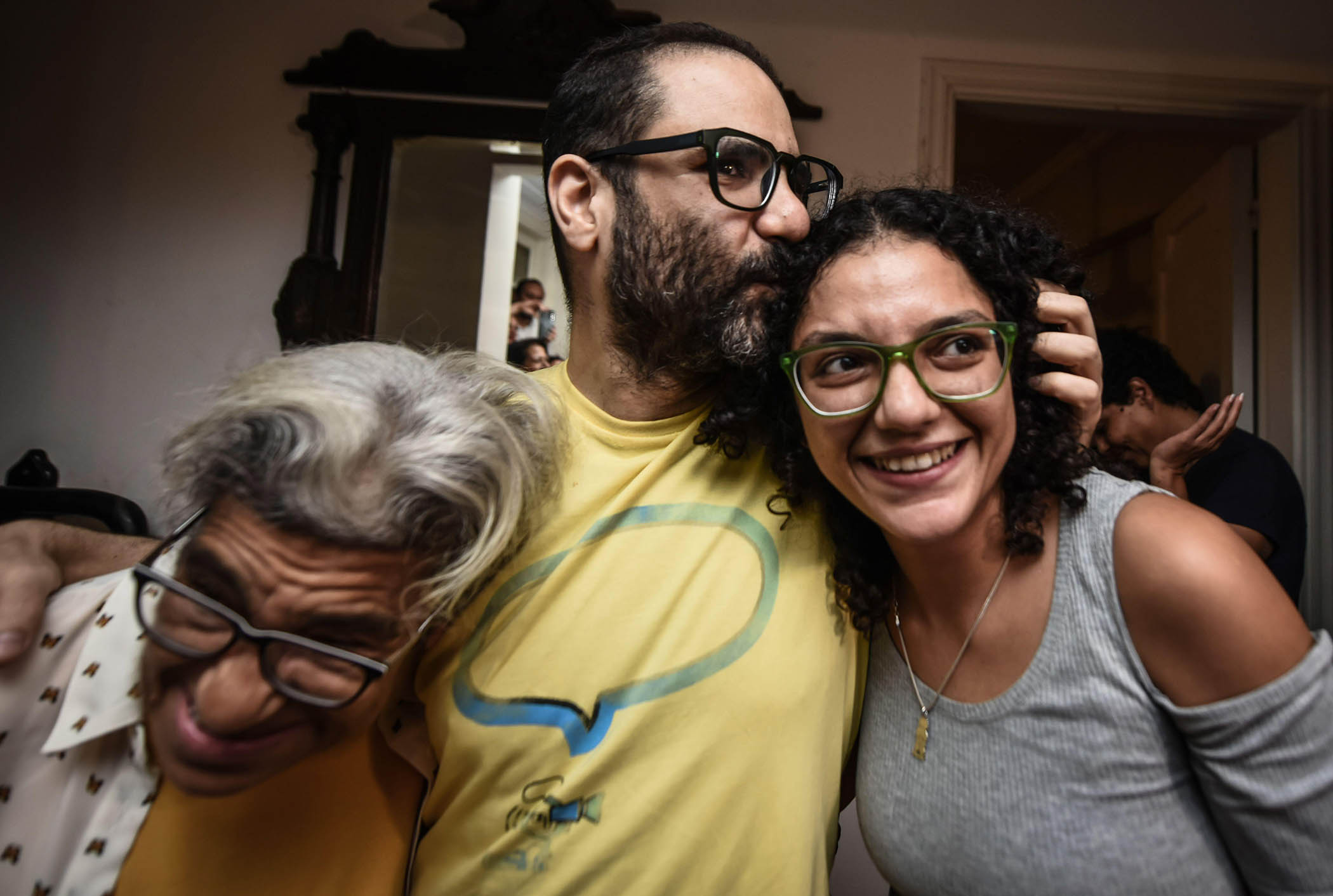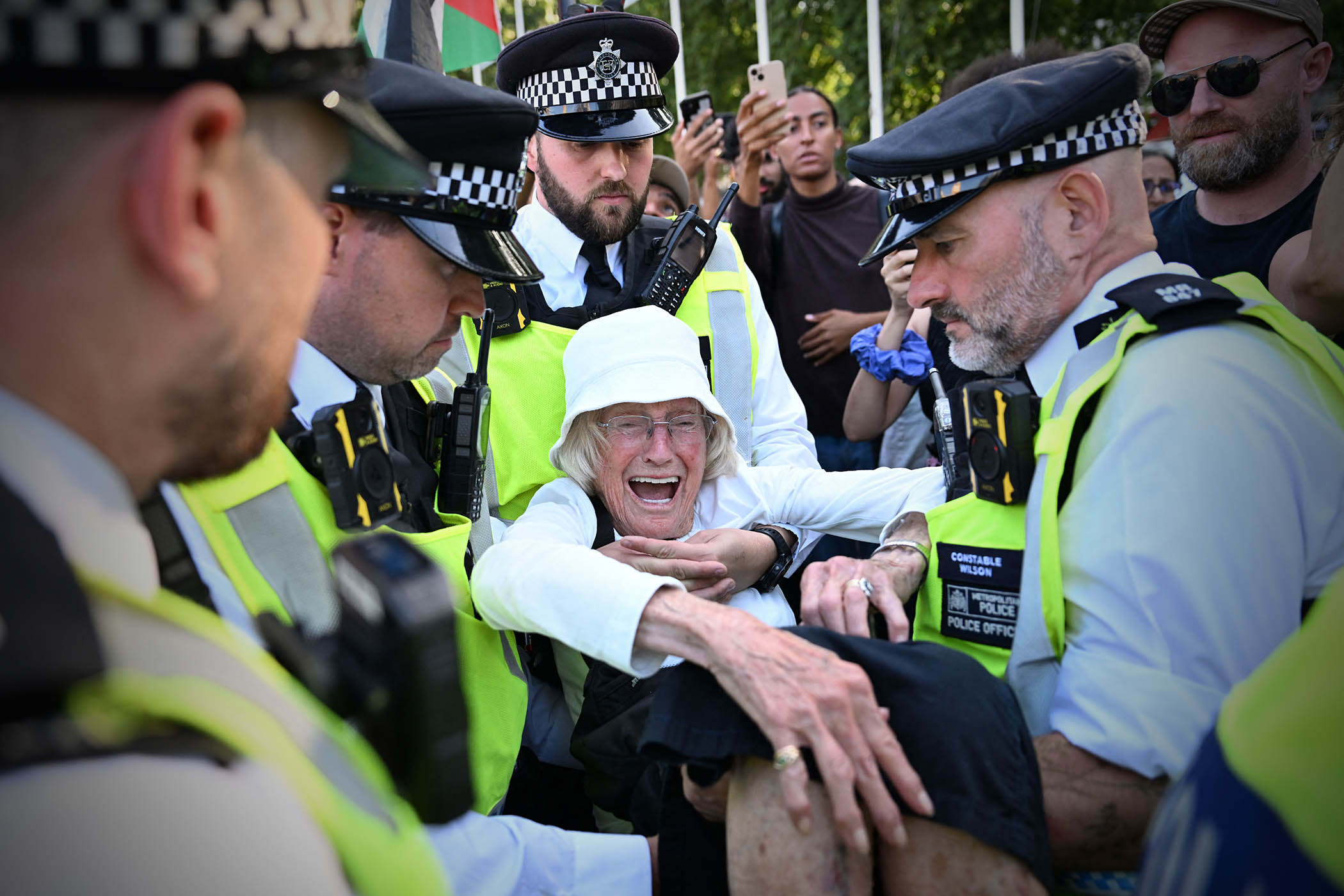British-Egyptian democracy campaigner Alaa Abd el-Fattah has been freed from prison in Egypt after spending most of the last 12 years behind bars.
So what? Abd el-Fattah was the Middle East’s most notorious prisoner of conscience. A figurehead of Egypt’s 2011 uprising who almost died while on hunger strike three years ago, he
•
endured torture and at times was banned from reading books and writing letters;
•
was the subject of intense diplomatic lobbying by the UK; and
•
became a symbol of resistance to authoritarianism, not just in Egypt but across the region.
At last. Egyptian president Abdel Fattah el-Sisi pardoned Abd el-Fattah on Monday alongside five others. No specific reason was given. Wearing a yellow t-shirt emblazoned with an empty speech bubble, he arrived to jubilation at his family home in Cairo.
Family effort. It was a moment Abd el-Fattah's relatives had worked towards for years. His 69-year-old mother, British-born mathematician Laila Soueif, went on hunger strike in 2024 for nine months, losing over a third of her body weight and stopping only to avoid death. His sister, Sanaa Seif, staged a sit-in outside the Foreign Office in 2022 to get the UK to act.
The pressure paid off. Senior ministers eventually took up his case, with Keir Starmer pushing harder than his predecessors for Abd el-Fattah's release.
Context. Amr Magdi of Human Rights Watch called Abd el-Fattah's release “long overdue good news”. But he also highlighted how “thousands of people like Alaa are still languishing in Egyptian jails simply for exercising their rights to freedom of speech."
Idealist. A prominent blogger and pro-democracy voice, Abd el-Fattah was a key organiser in the movement that overthrew Hosni Mubarak in 2011. He was arrested that year after publishing an article about the military killing protestors.
Clamp down. Sisi stifled dissent and crushed the dreams of Egypt’s revolution after coming to power in a military coup in 2013. His regime has locked up tens of thousands of political prisoners.
This includes Abd el-Fattah, against whom Sisi reportedly harbours a personal grudge. He was arrested again in 2014, accused of organising illegal protests, and spent five years behind bars.
Take two. Six months after his release, Abd el-Fattah was detained over a social media post about torture in Egypt's prisons and added to the country’s “terrorism” list. He subsequently received a five-year sentence for publishing fake news harmful to the national interest.
Newsletters
Choose the newsletters you want to receive
View more
For information about how The Observer protects your data, read our Privacy Policy
Unbowed. This failed to silence him. In 2021 he published a book of essays, entitled You Have Not Yet Been Defeated, which included material that had been smuggled outside his maximum security facility in the desert.
Protest. Abd el-Fattah went on hunger strike for seven months in 2022. He stopped drinking water and came close to death as Egypt hosted COP27. Sisi ignored numerous calls for his release, including those from the leaders of the UK, France and Germany.
Prolonged. Egypt’s authorities did not free Abd el-Fattah after he finished his prison term last year, prompting his mother to begin her own hunger strike. Now he is free, his family are desperate for him to fly to the UK and be reunited with his son, who lives in Brighton.
Unfortunately… It's not yet clear if the Egyptian authorities will allow it. Other activists have endured lengthy travel bans that prevent them from leaving the country.



